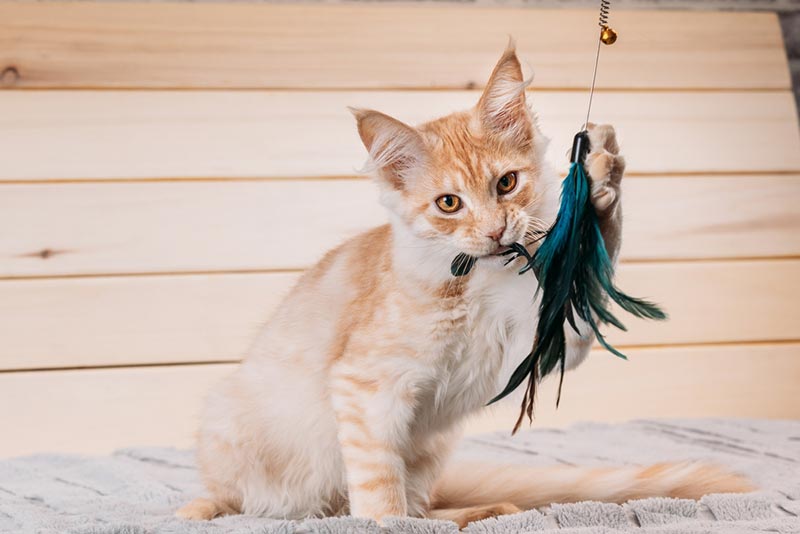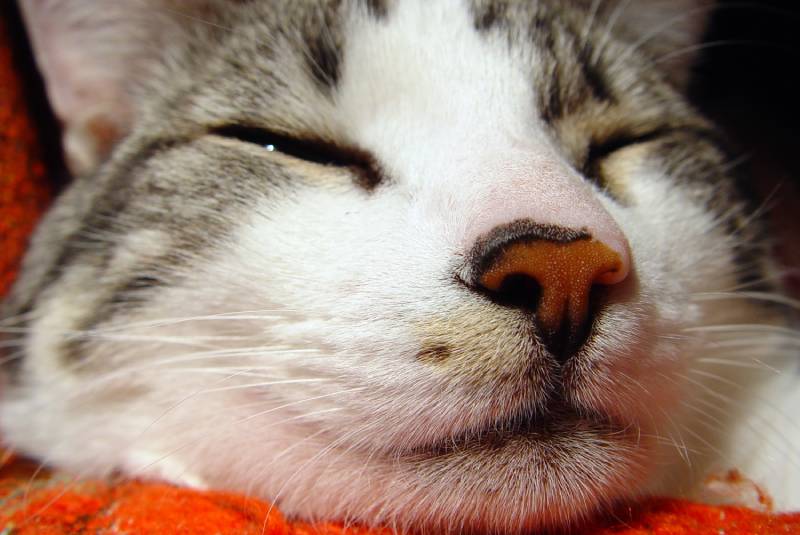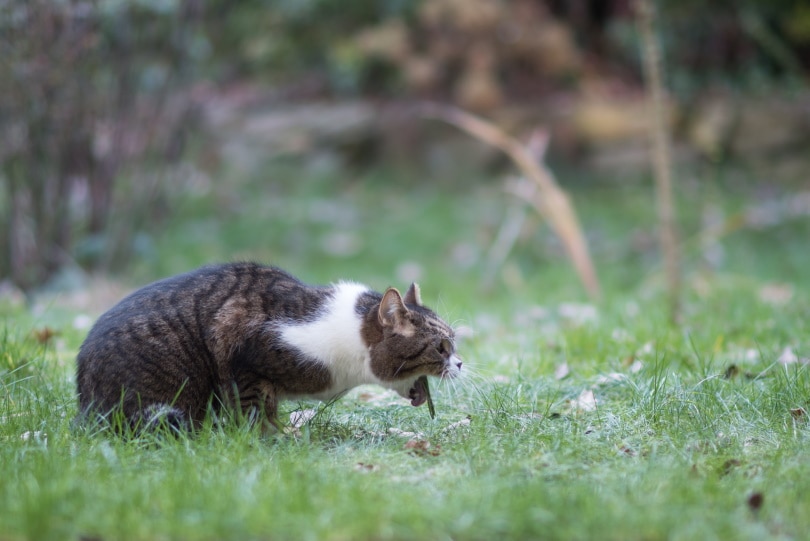
If you’re like most people, you probably think that there’s only one type of cat personality: cat. While some cats might be more affectionate or standoffish, at the end of the day, aren’t they all basically the same?
As it turns out, the answer is no. According to animal researchers, there are five basic cat personality types and five different personality traits. We cover each of these personality traits in more detail here, so follow along and see which category your cat may fall into.
However, it’s worth noting that like with human personalities, cats may not fall neatly into any single box. Your cat may be mostly one type but with elements of another, so don’t try to force them into a certain box if they don’t fit (and if they do fit in a certain box, of course, they’ll sit in it).
The 5 Cat Personality Types
The different cat personality types were largely developed by Dr. Lauren Finka of the University of Lincoln in England. Dr. Finka based her findings on interviews with 200 cat owners, and she ultimately came up with the following personality types.
1. The Human Cat
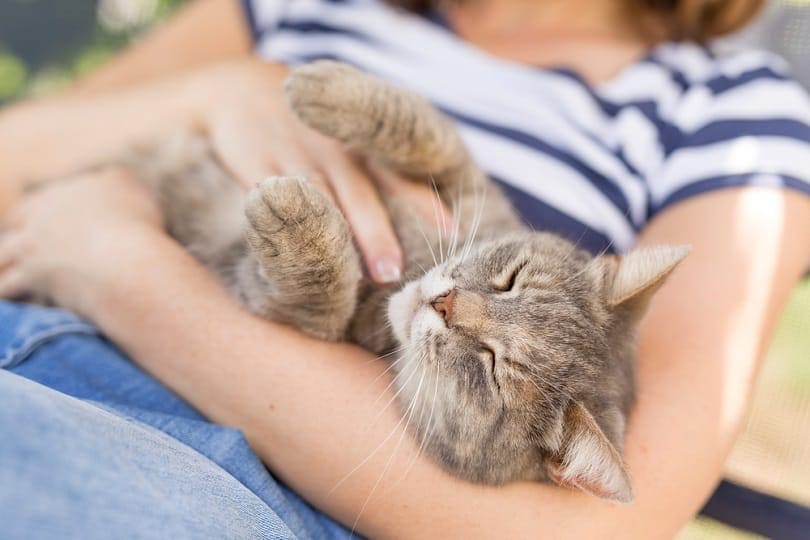
This is a cat that has adapted well to sharing their space with a human. They enjoy being around you, are affectionate, and are largely happy and well-adjusted. In many ways, this is the “ideal” cat to have as a pet, as they will happily spend time with you without resorting to aggression or violence.
The flip side to this is that a human cat is more likely to suffer from separation anxiety and may not enjoy sharing you with other animals (or other humans).
2. The Cantankerous Cat
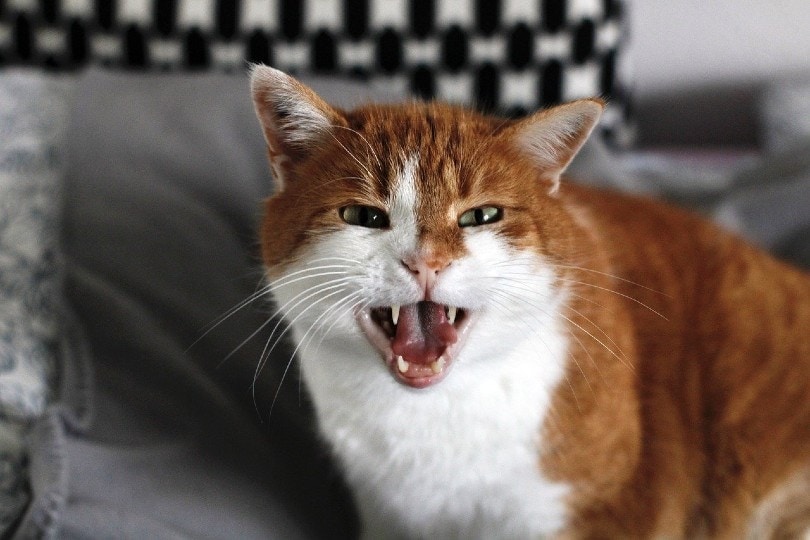
This is the opposite of the human cat. While not a feral cat, the cantankerous cat doesn’t really like to be touched, picked up, or interacted with (short of being fed and given treats, of course). These animals are usually skittish and nervous and may never be fully comfortable sharing your home with you.
Cantankerous cats certainly aren’t warm and cuddly, but they are independent creatures, so they won’t mind if you’re gone all day. Also, any affection that your cantankerous cat does decide to give you will be worth way more than what you get from a human cat.
3. The Hunter Cat
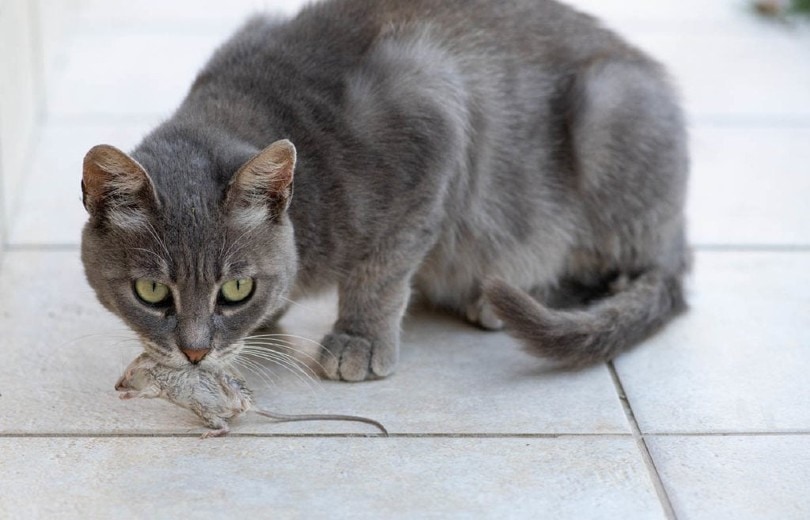
This is the closest to being a feral cat of all the personality types. Hunter cats spend most of their time hunting, whether that means chasing mice or sneaking up on mice-like toys. They don’t seem to grasp the fact that you’ll provide all their meals free of charge, so they spend the vast majority of their waking hours trying to catch something to eat.
Hunter cats may or may not tolerate affection, but they’re usually much less motivated by love than they are by the opportunity to murder something.
4. The Cat’s Cat

These cats are affectionate toward their fellow felines, and they choose to spend most of their time cuddling with, grooming, and playing with other cats.
Cat’s cats may also love humans, but they prefer the company of other kitties (and who could blame them?). Obviously, they do well in multi-cat households, and they may become depressed if kept as an only cat.
5. The Inquisitive Cat

These cats love to explore and spend most of their day sniffing around the house. Any visitors are immediately greeted and thoroughly inspected, and while they may or may not tolerate affection from them, they’ll definitely smell them up and down.
Inquisitive cats do well with toys, especially things like boxes, bags, and mazes. They’re bold and confident and usually don’t do well as outdoor cats, as that confidence can get them into trouble (we all know what curiosity did to the cat, after all).
The 5 Cat Personality Traits
Another way of looking at your cat’s personality is through the lens of these five traits, which were developed by researchers at the University of South Australia.
Rather than trying to make overall claims about a cat’s personality, they chose instead to focus on the individual traits that tend to make up their dispositions.
1. Skittishness
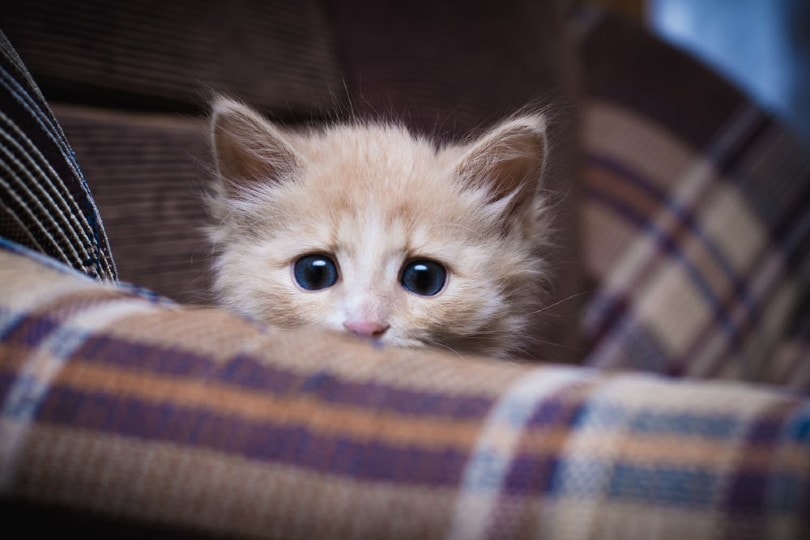
Skittish cats are nervous and constantly on edge. They may not come out to visit that often (and never when strangers are present), and they may immediately bolt for cover every time there’s an unexpected noise.
If you have a skittish cat, you should give them plenty of places where they can hide and feel safe. Tall cat trees (especially ones with built-in kitty condos) are good ideas.
You may also want to see if you can pinpoint what’s causing their skittishness. They may be afraid of another cat in the house, or there might be something in your home that frightens them. If you can remove or reduce the trigger, you may reduce the skittishness.
It’s also worth noting that skittishness refers to an enduring nervousness — not the nervousness exhibited by cats in a new environment. If you just brought your cat home, it’s natural for them to be a bit on edge for a few days. If that nervousness persists, however, you may have a skittish cat on your hands.
2. Outgoingness
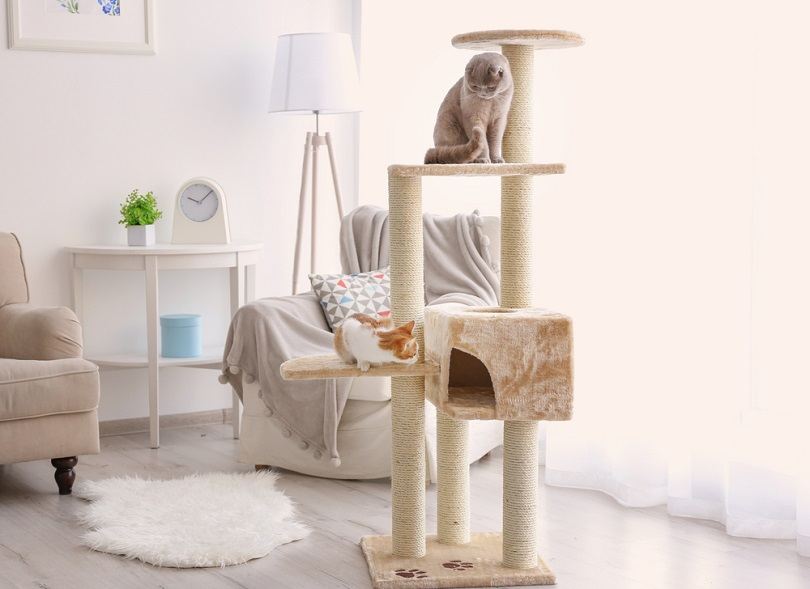
In many ways, this is the opposite of skittishness. Outgoing cats are curious (much like the “inquisitive cat” personality type), and they’ll happily come out to greet guests or rummage through the groceries that you just brought home.
These cats benefit from having plenty of toys and interactive playthings in the house, and you may want to consider building them a catio or at least putting a cat tree by the window. However, as with inquisitive cats, you don’t want to let them roam around outside.
You should also take note if you have an outgoing cat that’s suddenly become more reclusive. While this can be a normal part of aging, it can also mean that your cat is in pain or suffering from some sort of illness.
3. Dominance
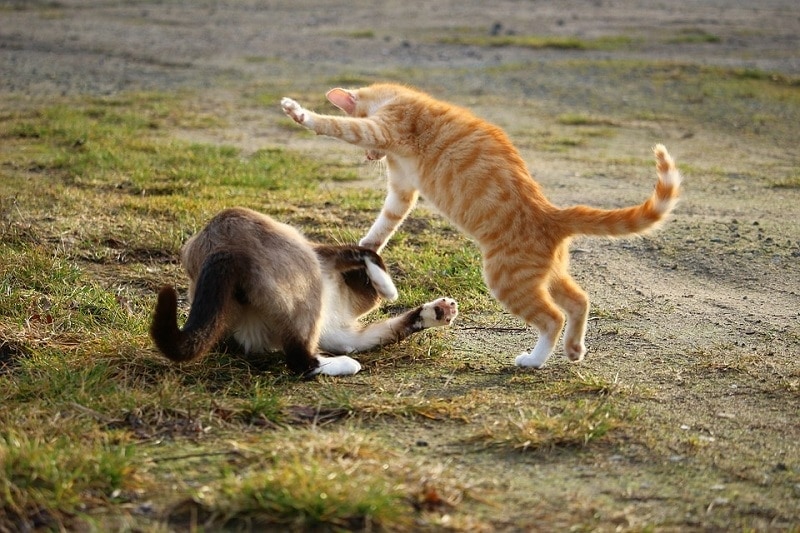
Dominant cats don’t do well with other felines. They may fight or bully more submissive cats, and having a dominant cat is a great way to ensure that you have one or more skittish cats as well.
You shouldn’t let a dominant cat roam around outside, as they’ll likely battle with other cats in the neighborhood. That dramatically increases the likelihood that they’ll get seriously injured or contract a disease like feline AIDS.
Dominant cats may also try to dominate other species, like dogs. This might end up with your dog becoming just as skittish as your other cats or with the dog putting an immediate (and possibly fatal) stop to the bullying. Either way, it’s best to not let your dominant cat interact with other animals.
While you may be able to temper a cat’s dominance through training, socialization, or medical intervention (such as giving them anti-anxiety medication or spaying or neutering them), it may not be something that you can help. In that case, your best bet is to just make sure they’re the only kitty in the house or to keep them separated from the other animals at all times.
4. Spontaneity
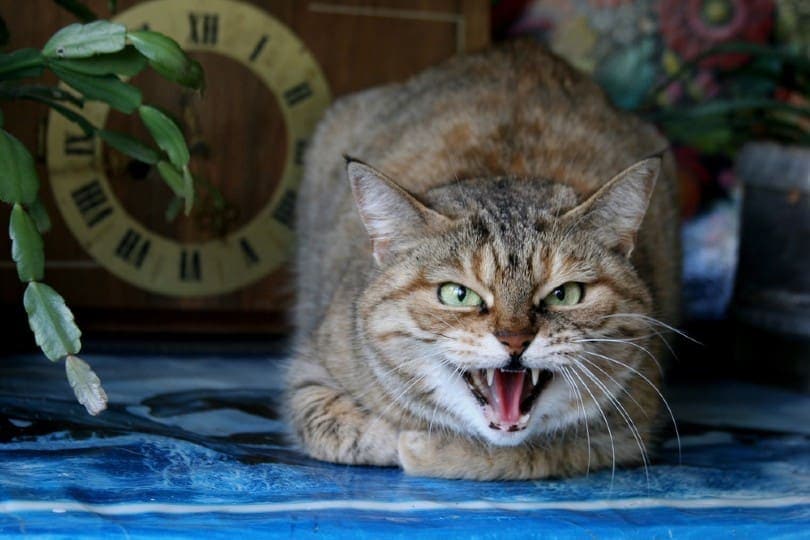
Spontaneous cats are impulsive and erratic. They might go from cuddling up in your lap one second to tearing around your apartment at top speed the next, with seemingly no rhyme or reason for the change.
These kitties are similar to skittish cats, although their behavior may be less nervous than their counterparts. Still, you should try to see if you can figure out what’s causing the impulsive behavior, as it may stop if you identify and remove triggers.
5. Friendliness
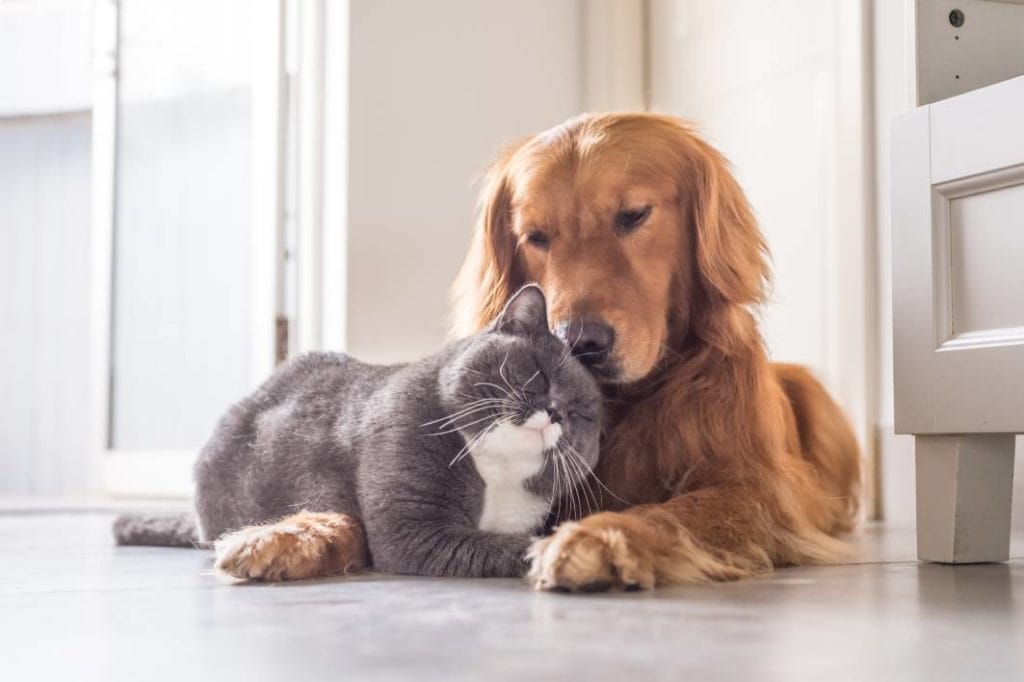
The opposite of dominance, friendliness in cats indicates a willingness to accept other people and animals into the cat’s territory. They may welcome other kittens (and even dogs!) as additional playmates, and they’ll likely be the first person to greet a guest when they walk through the door.
While friendliness can be an innate trait in some cats, in most cases, it’s the result of successful socialization. The more time that your cat spends around other people and animals — especially as a young kitten — the more likely they will see them as friends rather than threats.
As with inquisitive cats, though, friendliness isn’t always a good thing, especially if the cat is allowed outside. Some animals truly are threats, and a friendly cat may be less likely to identify them as such before it’s too late.
What Does It Matter What Type of Personality Your Cat Has?
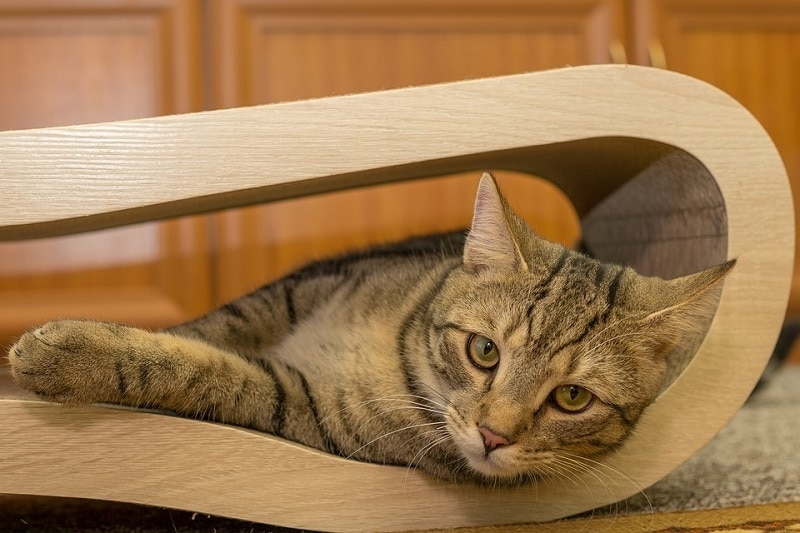
In some ways, a cat’s personality type may just be a fun piece of trivia — a way to learn more about (and feel closer to) your cat.
However, certain personality types can dramatically affect your cat’s quality of life. A skittish cat likely isn’t comfortable or happy in their surroundings, so anything that you can do to reduce that skittishness will improve their quality of life.
Likewise, if you’re thinking about adopting a new kitten, it would be helpful to know whether the cats that you already have are dominant. If that’s the case, you’d be better off waiting until those cats moved on before adding to your pack.
It’s also important to understand your cat’s baseline personality so you can spot any changes to it. As with humans, sudden and dramatic personality shifts in cats are usually a sign that something is wrong. That could mean that the cat is sick or that there’s something in their environment that’s troubling them. Either way, it’s important to figure out the cause as soon as possible.
What Type of Personality Does Your Cat Have?
While your cat may not fit neatly into any of the personality traits or types listed here, there’s a good chance that at least one of them does a good job of describing your pet. You don’t have to necessarily do anything with this information, but hopefully, it at least helps you understand your cat better.
Related read:
Featured Image Credit: absolutimages, Shutterstock


